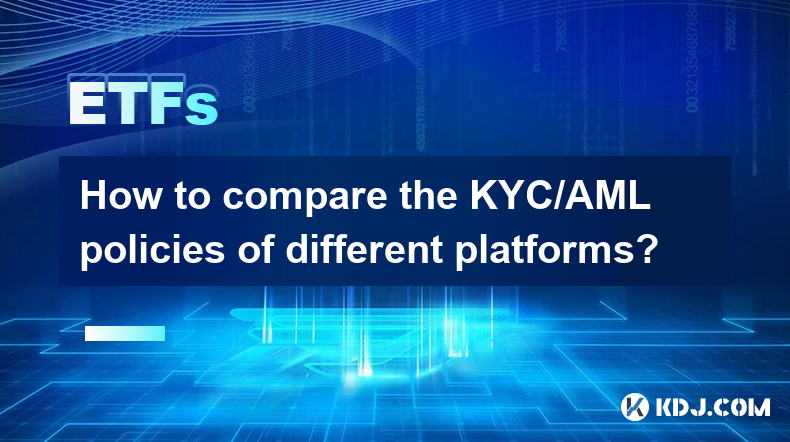-
 Bitcoin
Bitcoin $87,183.0218
2.51% -
 Ethereum
Ethereum $1,574.7724
-0.66% -
 Tether USDt
Tether USDt $1.0000
0.01% -
 XRP
XRP $2.0751
0.16% -
 BNB
BNB $596.5259
0.77% -
 Solana
Solana $135.7967
-1.16% -
 USDC
USDC $0.9999
-0.01% -
 Dogecoin
Dogecoin $0.1584
2.14% -
 TRON
TRON $0.2465
0.57% -
 Cardano
Cardano $0.6201
-0.07% -
 Chainlink
Chainlink $13.0374
-2.17% -
 UNUS SED LEO
UNUS SED LEO $9.1386
-2.00% -
 Avalanche
Avalanche $19.7756
1.73% -
 Stellar
Stellar $0.2503
2.79% -
 Shiba Inu
Shiba Inu $0.0...01233
-0.26% -
 Toncoin
Toncoin $2.8831
-4.01% -
 Hedera
Hedera $0.1684
1.37% -
 Sui
Sui $2.1872
3.82% -
 Bitcoin Cash
Bitcoin Cash $344.2873
2.30% -
 Hyperliquid
Hyperliquid $18.0531
3.76% -
 Polkadot
Polkadot $3.7760
-2.94% -
 Litecoin
Litecoin $77.6272
-0.57% -
 Dai
Dai $0.9999
0.00% -
 Bitget Token
Bitget Token $4.4329
0.59% -
 Ethena USDe
Ethena USDe $0.9993
0.00% -
 Pi
Pi $0.6345
-0.88% -
 Monero
Monero $215.1085
0.19% -
 Uniswap
Uniswap $5.2560
0.34% -
 Pepe
Pepe $0.0...07738
2.61% -
 OKB
OKB $50.9648
1.42%
How to compare the KYC/AML policies of different platforms?
Comparing KYC/AML policies entails understanding the regulatory landscape, examining verification procedures, assessing data security, evaluating compliance monitoring, and considering reputation and industry standing.
Jan 06, 2025 at 10:32 pm

Key Points:
- Understanding the KYC/AML Regulatory Landscape
- Comparing KYC/AML Procedures: A Step-by-Step Guide
- Assessing Data Protection and Security Measures
- Evaluating Compliance Monitoring Mechanisms
- Considering Reputation and Industry Standing
How to Compare the KYC/AML Policies of Different Platforms:
1. Understanding the KYC/AML Regulatory Landscape:
- Familiarize yourself with the KYC (Know Your Customer) and AML (Anti-Money Laundering) regulations applicable to cryptocurrency platforms.
- Examine local and international laws and guidelines, such as the Financial Action Task Force (FATF) Recommendations.
- Understand how these regulations impact platform operations and user onboarding processes.
2. Comparing KYC/AML Procedures: A Step-by-Step Guide:
Identity Verification Process:
- Compare the level of customer due diligence (CDD) required, including identity document verification, facial recognition, and address confirmation.
- Assess the timing and ease of completing the verification process.
Source of Funds Verification:
- Determine the mechanisms used to verify the source of customer funds, such as bank statements, pay stubs, or tax returns.
- Evaluate the thoroughness and documentation requirements involved.
Risk Assessment and Monitoring:
- Review the platform's risk assessment protocols for identifying suspicious activities and high-risk customers.
- Examine the ongoing monitoring techniques used to detect and prevent money laundering.
Reporting and Cooperation with Authorities:
- Verify the platform's obligations to report suspicious transactions or activities to regulatory authorities.
- Assess the platform's responsiveness to law enforcement requests and its support for investigations.
3. Assessing Data Protection and Security Measures:
- Examine the platform's data protection practices, including data encryption, access controls, and storage policies.
- Evaluate the platform's cybersecurity measures to protect user information, such as firewalls, intrusion detection systems, and disaster recovery plans.
- Assess the platform's adherence to relevant data protection regulations, such as the General Data Protection Regulation (GDPR).
4. Evaluating Compliance Monitoring Mechanisms:
- Review the platform's internal controls and audit procedures for ensuring KYC/AML compliance.
- Examine the frequency and scope of internal audits, as well as the independence and experience of auditors.
- Assess the platform's willingness to share compliance reports and subject itself to external audits.
5. Considering Reputation and Industry Standing:
- Research the platform's reputation within the cryptocurrency community.
- Look for independent reviews and industry certifications that demonstrate the platform's adherence to KYC/AML standards.
- Consider the platform's membership in industry associations or its collaboration with law enforcement and regulatory bodies.
FAQs:
What is the purpose of KYC/AML regulations for cryptocurrency platforms?
- To prevent the use of platforms for money laundering, terrorist financing, and other illicit activities.
What information do platforms typically collect during the KYC/AML process?
- Proof of identity, such as a passport or driver's license, as well as proof of address and source of funds.
Are KYC/AML requirements the same for all cryptocurrency platforms?
- No, different platforms may have variations in their KYC/AML procedures based on local regulations and risk assessments.
How can I ensure that my personal information is protected when using cryptocurrency platforms?
- Research the platform's data protection policies, security measures, and compliance track record.
What should I do if I have concerns about a platform's KYC/AML compliance?
- Contact the platform's support team or report your concerns to relevant authorities or industry associations.
Disclaimer:info@kdj.com
The information provided is not trading advice. kdj.com does not assume any responsibility for any investments made based on the information provided in this article. Cryptocurrencies are highly volatile and it is highly recommended that you invest with caution after thorough research!
If you believe that the content used on this website infringes your copyright, please contact us immediately (info@kdj.com) and we will delete it promptly.
- Coinbase Lists Reserve Rights (RSR), a Dual-Token Stablecoin Platform Aimed at Creating a Collateral-Backed, Self-Regulating Stablecoin Ecosystem
- 2025-04-22 06:40:13
- The Ultimate Guide to Capital Rotation in the Cryptocurrency Market
- 2025-04-22 06:40:13
- Mantra's CEO Keeps His Word – Massive Tokens Burned: Will $OM Price Go From Collapse to Catalyst?
- 2025-04-22 06:35:14
- TRUMP Token Price Soars After Unlocking 40M New Coins
- 2025-04-22 06:35:14
- Avalanche Foundation Launches the Avalanche Card, Allowing Holders to Access Their Crypto Assets Seamlessly Around the World
- 2025-04-22 06:30:12
- The OM Token Crash: A Stark Reminder of Crypto's Wild West Nature
- 2025-04-22 06:30:12
Related knowledge

What role does SEC play in Bitcoin ETF approval?
Feb 25,2025 at 06:48am
Key Points:SEC's Role in Bitcoin ETF Approval ProcessHistorical Efforts to Establish a Bitcoin ETFSEC's Criteria for Bitcoin ETF ApprovalPotential Impact of a Bitcoin ETF on the Cryptocurrency MarketTimeline and Outlook for Bitcoin ETF ApprovalArticle:SEC Play in Bitcoin ETF ApprovalThe United States Securities and Exchange Commission (SEC) plays a crit...

Who is eligible to issue Bitcoin ETFs?
Feb 25,2025 at 11:13am
Key Points:Only regulated financial institutions with the necessary expertise and infrastructure are eligible to issue Bitcoin ETFs.The Securities and Exchange Commission (SEC) has not yet approved any spot Bitcoin ETFs, but has approved several futures-based ETFs.Applicants must meet stringent requirements, including having a strong track record and su...

What impact does Bitcoin ETF have on the market?
Feb 25,2025 at 11:37am
Key Points:Introduction to Bitcoin ETFs and their role in the cryptocurrency marketHistorical development and performance of Bitcoin ETFsPotential benefits of Bitcoin ETFs for investors and the marketRisks and limitations associated with Bitcoin ETFsRegulatory considerations and their impact on Bitcoin ETFsArticle:Introduction to Bitcoin ETFsBitcoin exc...

Which investors are Bitcoin ETFs suitable for?
Feb 27,2025 at 04:01pm
Key Points:Understanding Bitcoin ETFsBenefits of Bitcoin ETFsSuitability of Bitcoin ETFs for Different InvestorsAssessing Risk Tolerance and Investment GoalsConsidering Short-Term and Long-Term StrategiesExamining Tax ImplicationsSeeking Professional AdviceUnderstanding Bitcoin ETFsBitcoin exchange-traded funds (ETFs) are investment vehicles that track ...

What is the administrative expenses of Bitcoin ETFs?
Feb 26,2025 at 12:24am
Key Points:Administrative expenses are a crucial factor to consider when evaluating Bitcoin ETFs.These expenses can significantly impact the performance of the fund and ultimately the investor's returns.Understanding the various components of administrative expenses is essential for informed decision-making.Comparing administrative expenses across diffe...

What are the fees for purchasing Bitcoin ETFs?
Feb 27,2025 at 07:13pm
Key Points:Bitcoin exchange-traded funds (ETFs) are a cost-effective and regulated way to gain exposure to Bitcoin.Fees associated with Bitcoin ETF purchases vary depending on the platform, trading volume, and account type.It is essential to evaluate fee structures carefully to optimize investment returns.Fees Associated with Purchasing Bitcoin ETFs1. B...

What role does SEC play in Bitcoin ETF approval?
Feb 25,2025 at 06:48am
Key Points:SEC's Role in Bitcoin ETF Approval ProcessHistorical Efforts to Establish a Bitcoin ETFSEC's Criteria for Bitcoin ETF ApprovalPotential Impact of a Bitcoin ETF on the Cryptocurrency MarketTimeline and Outlook for Bitcoin ETF ApprovalArticle:SEC Play in Bitcoin ETF ApprovalThe United States Securities and Exchange Commission (SEC) plays a crit...

Who is eligible to issue Bitcoin ETFs?
Feb 25,2025 at 11:13am
Key Points:Only regulated financial institutions with the necessary expertise and infrastructure are eligible to issue Bitcoin ETFs.The Securities and Exchange Commission (SEC) has not yet approved any spot Bitcoin ETFs, but has approved several futures-based ETFs.Applicants must meet stringent requirements, including having a strong track record and su...

What impact does Bitcoin ETF have on the market?
Feb 25,2025 at 11:37am
Key Points:Introduction to Bitcoin ETFs and their role in the cryptocurrency marketHistorical development and performance of Bitcoin ETFsPotential benefits of Bitcoin ETFs for investors and the marketRisks and limitations associated with Bitcoin ETFsRegulatory considerations and their impact on Bitcoin ETFsArticle:Introduction to Bitcoin ETFsBitcoin exc...

Which investors are Bitcoin ETFs suitable for?
Feb 27,2025 at 04:01pm
Key Points:Understanding Bitcoin ETFsBenefits of Bitcoin ETFsSuitability of Bitcoin ETFs for Different InvestorsAssessing Risk Tolerance and Investment GoalsConsidering Short-Term and Long-Term StrategiesExamining Tax ImplicationsSeeking Professional AdviceUnderstanding Bitcoin ETFsBitcoin exchange-traded funds (ETFs) are investment vehicles that track ...

What is the administrative expenses of Bitcoin ETFs?
Feb 26,2025 at 12:24am
Key Points:Administrative expenses are a crucial factor to consider when evaluating Bitcoin ETFs.These expenses can significantly impact the performance of the fund and ultimately the investor's returns.Understanding the various components of administrative expenses is essential for informed decision-making.Comparing administrative expenses across diffe...

What are the fees for purchasing Bitcoin ETFs?
Feb 27,2025 at 07:13pm
Key Points:Bitcoin exchange-traded funds (ETFs) are a cost-effective and regulated way to gain exposure to Bitcoin.Fees associated with Bitcoin ETF purchases vary depending on the platform, trading volume, and account type.It is essential to evaluate fee structures carefully to optimize investment returns.Fees Associated with Purchasing Bitcoin ETFs1. B...
See all articles






















































































